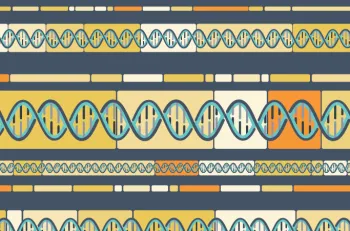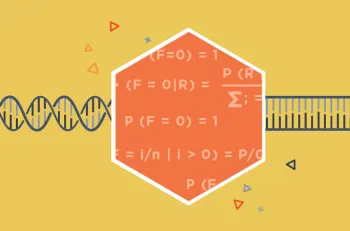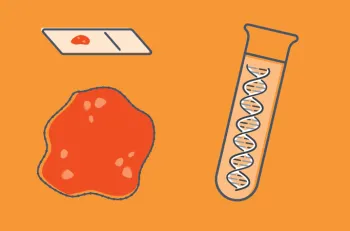Combines DNA and RNA sequencing to detect all four main classes of genomic alterations, including sensitive identification of translocations and fusions
FoundationOne®Heme
FoundationOne Heme
FoundationOne Heme is a comprehensive genomic profiling (CGP) test combining DNA and RNA sequencing for patients with hematologic malignancies and solid tumors. FoundationOne Heme detects known, novel, and complex fusion events as well as other common genomic alterations (substitutions, indels, and CNVs). This laboratory developed test (LDT) can be used by physicians to identify potential targeted therapy options, detect alterations in prognostic genes, and sub-classify diagnoses.
Test Features
FoundationOne Heme Resources
- Test Requisition Form (TRF)
- Test Requisition Form Explained
- FoundationOne Heme Technical Specifications (Gene List.)
- FoundationOne Heme Fresh Specimen Instructions
- FoundationOne Heme FFPE Specimen Instructions
- Mobile Phlebotomy Overview (Providers)
- Medicare ABN
- ABN Decision Tree (Hematologic Malignancies)
- ABN Decision Tree (Solid Tumors)
Real-life Results
Learn more about the clinical utility of FoundationOne Heme in a number of cancer types.
Can Rapid Precision Medicine Help Older Adults With AML?
The findings from the Beat AML Master trial offer new insights that, we believe, can help change clinical practice because they validate a framework for rapid precision medicine that improves outcome. Because blood cancers are so complex, they require a sophisticated strategy to understand each patient’s unique cancer as well as the treatments that have the best chance at improving survival.
Genomic Landscape of Adult and Pediatric BCR‐ABL1 ‐Like B‐Lymphoblastic Leukemia Using Parallel DNA and RNA Sequencing
Comprehensive genomic profiling performed on 450 patients with extensive fusion profiling revealed a wide range of genomic alterations which were consistent with a classification of BCR‐ABL1‐like B‐ALL in 29% of cases.
CTOS 2019: Navigating the sarcoma maze with CGP
With more than 80 subtypes, sarcomas can be susceptible to misdiagnosis, and there are very limited treatment guidelines beyond standard chemotherapy.4 This is where comprehensive genomic profiling (CGP) can help remove the guess work by identifying alterations in the genes driving the cancer that might be prognostic or inform targeted therapies.
We Have Even More to Offer
Learn more about our other tests: FoundationOne®CDx and FoundationOne®Liquid CDx. You can also explore our decision support, report integration, and clinical research and trial matching services.
Need More Details?
Our client services team is here to help, Monday through Friday 8AM – 8PM EST.
Additional Notes
NCCN makes no warranties of any kind whatsoever regarding their content, use or application and disclaims any responsibility for their application or use in any way.
1Referenced with permission from the NCCN Clinical Practice Guidelines in Oncology (NCCN Guidelines®) for Acute Myeloid Leukemia V.3.2021. © National Comprehensive Cancer Network, Inc. 2021. All rights reserved. Accessed April 30, 2021. To view the most recent and complete version of the guideline, go online to NCCN.org.
2Referenced with permission from the NCCN Clinical Practice Guidelines in Oncology (NCCN Guidelines®) for Acute Lymphoblastic Leukemia V.1.2021. © National Comprehensive Cancer Network, Inc. 2021. All rights reserved. Accessed April 30, 2021. To view the most recent and complete version of the guideline, go online to NCCN.org.
3Referenced with permission from the NCCN Clinical Practice Guidelines in Oncology (NCCN Guidelines®) for Myelodysplastic Syndromes V.3.2021. © National Comprehensive Cancer Network, Inc. 2021. All rights reserved. Accessed April 30, 2021. To view the most recent and complete version of the guideline, go online to NCCN.org.
4Casali, et al. Soft tissue and visceral sarcomas: ESMO-EURACAN Clinical Practice Guidelines for diagnosis, treatment, and follow-up. Annals of Oncology. 2018;29(Supp 4):iv51-iv67. doi:10.1093/annonc/mdy096.
FoundationOne Heme was developed and its performance characteristics determined by Foundation Medicine. It has not been cleared or approved by the U.S. Food and Drug Administration. For more information on our laboratory developed test (LDT) please see the Technical Specifications at www.foundationmedicine.com.


